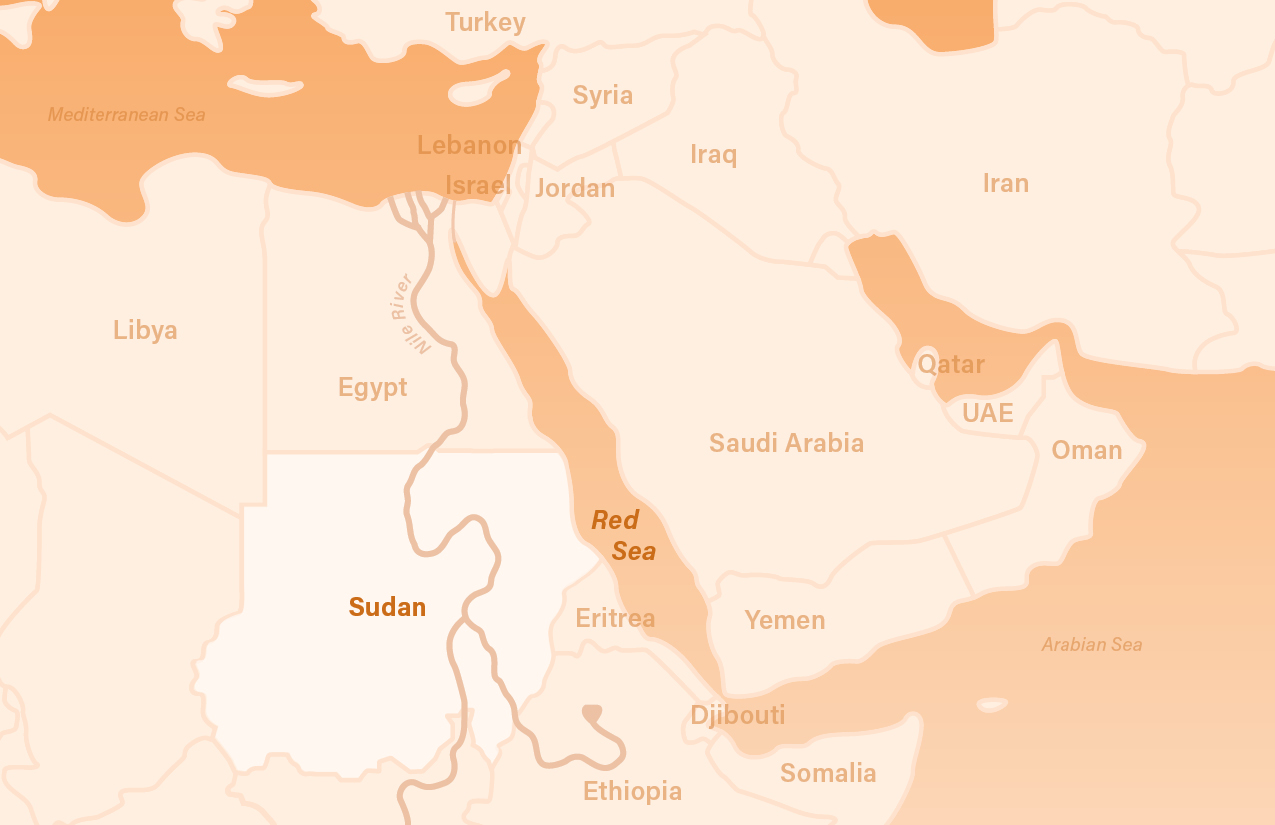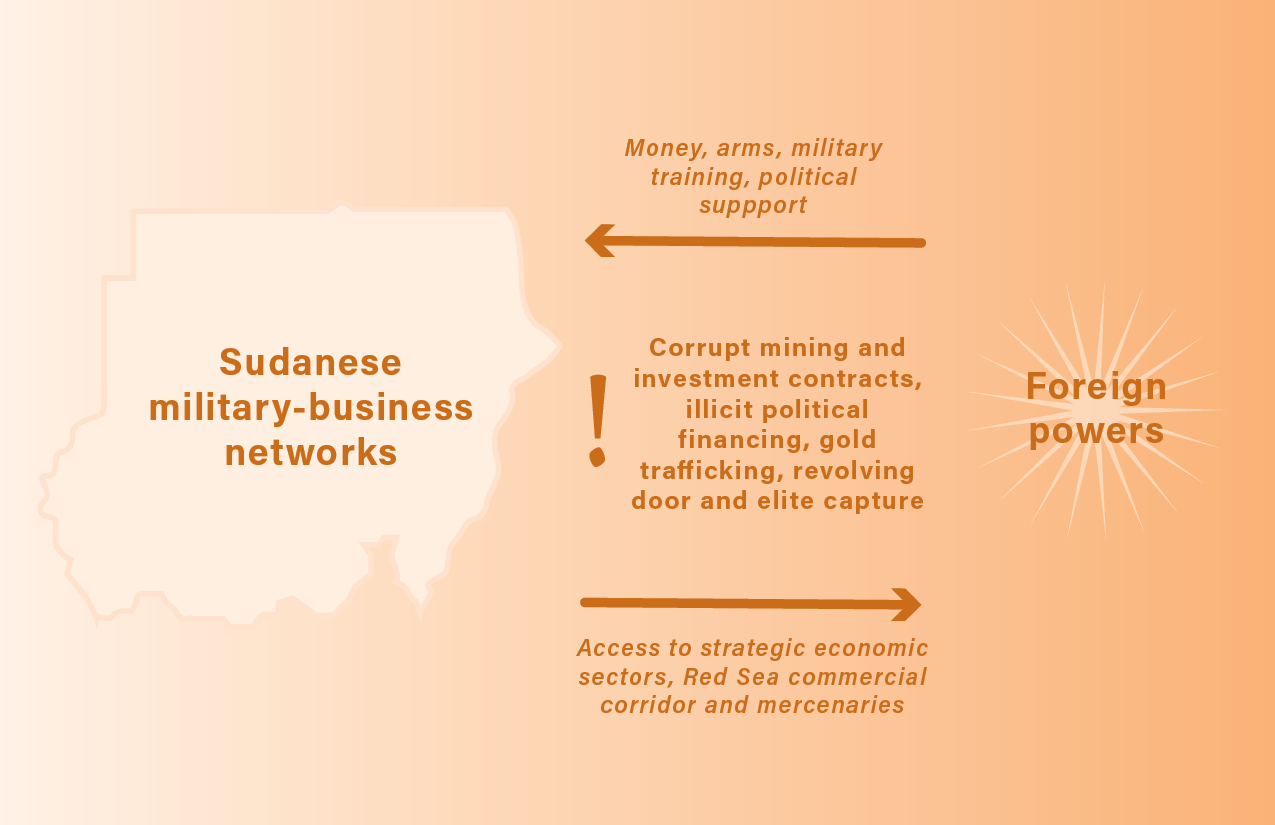Strategic corruption, democracy and security in Sudan

Amid geopolitical turbulence and concerns around the rise of authoritarianism and armed conflict, many people are looking at how corruption can be used “strategically” to deliberately undermine democratic institutions.
The so-called strategic use of corruption is not new. It’s often portrayed simplistically as a kind of Western movie with good guys vs. bad guys, victims vs. aggressors. The picture is, of course, more complicated than that.
In a recent article for the Public Integrity journal, we explore this phenomenon from the perspective of a country where strategic corruption was arguably linked to the collapse of a fledging democracy: Sudan.
In 2019, the civilian-military government of Sudan led by Prime Minister Hamdok began an ambitious transition to democratic governance and the adoption of anti-corruption reforms. This transition ended in 2023 with state collapse and conflict. The story is a lesson on the complexity of corruption and on how closely anti-corruption efforts, democratic processes and security are linked.
Growth of foreign-supported power centres
The article tells the story of the governance system that emerged during the military-political rule of former President al-Bashir. At the time, there were powerful groups within the military, and coups were a frequent occurrence. A savvy solution was needed to address this.
In order to appease these powerful military actors, including the Sudanese Armed Forces (SAF) and the paramilitary Rapid Support Forces (RSF), al-Bashir’s regime provided opportunities for them to expand their economic and business interests while politically keeping them under his direct control.
Leveraging the country's rich natural resources became a means of maintaining political and economic power.
Geopolitical significance
Sudan’s geopolitical position is a critical part of the story. The Red Sea is a key trading route. Russia and states in the Gulf region developed engagements with these powerful military actors. They exchanged money and other support for access to Sudan's natural resources and strategic geographic locations.
Corruption practices involved preferential investments and concessions in specific economic sectors such as mining and agriculture. There is also evidence of illicit financial flows associated with the gold trade, as well as the provision of financial resources and arms to non-state military actors. These deals served the geopolitical and domestic interests of both sides.
One example from the article is that in 2017, al-Bashir sought Russia’s support in response to increasing internal political and economic pressures, as well as external pressures exerted by the West. Moscow offered a partnership with Sudan, including political support, arms and military training by private military contractors, who were deployed to Sudan immediately.
In exchange, Russia gained access to a strategic commercial corridor in the Red Sea and preferential gold mining contracts.

Nevertheless, the situation remained turbulent domestically and culminated in the popular uprising of 2018–2019. Al-Bashir was ousted from office. A Transitional Military Council, which involved both the SAF and RSF, was formed to lead the country until the handover to a civilian-military-led government in August 2019.
Democratic transition undermined
With the civilian-military-led government at the helm of political power, a bold transition to democracy began, with positive signs of strengthening the fight against corruption emerging.
However, the aforementioned networks were directly impacted by Sudan’s democratic model and its citizens' aspirations. The networks and their leaders did not simply disappear with al-Bashir's removal. Behind the scenes, they were carefully orchestrating their next moves.
Despite the reforms, during the transition period these military-business networks expanded even further. They leveraged the support of external actors and developed their economic investments with the twin goal of undermining reforms and maintaining dominance over the national economy.
These actors became active antagonists of the democratic and anti-corruption reform process. After the course of reform went into reverse, armed conflict erupted once again in April 2023.
A deeper understanding of corruption and democracy
What happened in Sudan highlights this link between geopolitical objectives, corruption and the impact on democracy. It also challenges narratives that see strategic corruption simply as a tool wielded by foreign actors to undermine democracies.
Instead, we must deepen our understanding of how domestic environments can create the conditions for strategic corruption.
In Sudan, the revolution and the planned transition to democracy posed a threat to the individuals and networks benefiting from the status quo. This triggered them to use corruption and the help of external actors to undermine the process.
Promoting anti-corruption work = promoting security
The case of Sudan, like that of other countries undergoing democratic transitions, highlights the importance of supporting reforms that seek to strengthen democracy and counter corruption. Otherwise, the reform process risks being derailed, with horrific consequences for populations as well as instability in the wider region.
The paradox of our time is that, amid current geopolitical shifts, development assistance and support for anti-corruption reform are under pressure while security and defence are prioritised.
What happened in Sudan shows that this logic is a fallacy. Systemic corruption drives insecurity and instability. We cannot achieve security without fighting corruption and vice versa.
This trend is even more concerning as the fragmentation of the rules-based international order creates an environment conducive to strategic forms of corruption.
Learn more
- View the article in the Public Integrity journal: Karar, H., & Kassa, S. (2025). When You Have Corrupt Friends Abroad: The Impact of Strategic Corruption on Sudan’s Democratic Collapse. Public Integrity, 1–14.
- See the Basel Institute’s Quick Guide to Strategic Corruption.




